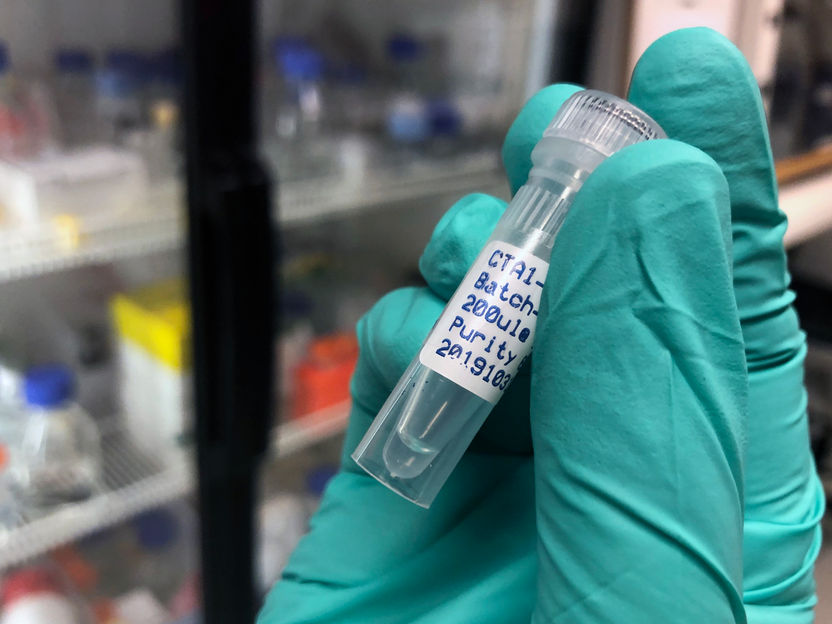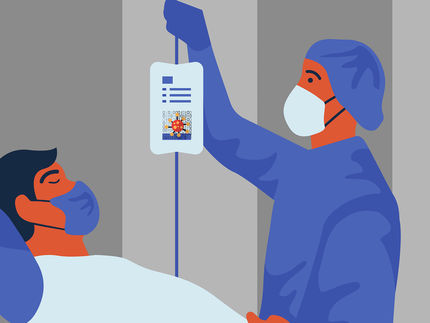Nasal spray could deliver a future mRNA vaccine against COVID-19
The researchers aim to design a biomimetic nanoparticle that deceives the body's immune cells to act as if they had encountered a true virus
In the global struggle against the coronavirus, scientists in a new pilot project led by Chalmers University of Technology, Sweden, hope to contribute with a possible vaccine, in the form of a nasal spray that triggers exactly the right immune cells. Through a broad collaboration between universities and external partners, the researchers are trying to find a new way to tackle both Covid-19 and other viruses that attack our cells.

The researchers aim to design a biomimetic nanoparticle that deceives the body's immune cells to act as if they had encountered a true virus. In fact, they encounter something known as an mRNA, which is a precursor to a harmless element of the virus. In addition, the artificial particle has been provided with both immune enhancers and a targeting protein – a ‘label’, which acts almost as a set of directions, allowing the vaccine to reach only a certain type of immune cell. When activated, the body will hopefully learn to recognise and defend itself against the virus in the future. The test tube in the picture contains the 'label'.
Mia Halleröd Palmgren/Chalmers University of Technology
“There are several benefits to administering a vaccine directly into the nasal mucosa. It mimics how many viruses often enter the body and can therefore more effectively trigger the immune defence at the point of entry. And if we consider the need to deliver the vaccine globally, this concept has the great advantage that it could be sent by mail and taken in a home environment,” says researcher Karin Norling at the Department of Biology and Biological Engineering at Chalmers University of Technology.
Karin Norling recently defended her PhD thesis in bioscience and is now in the process of coordinating and preparing the laboratory work for the new pilot project.
By combining several promising concepts developed at Chalmers University of Technology and the University of Gothenburg, AstraZeneca and internationally, the researchers hope to be able to test a unique vaccination concept against COVID-19.
The researchers aim to design a biomimetic nanoparticle that deceives the body's immune cells to act as if they had encountered a true virus. In fact, they encounter something known as an mRNA, which is a precursor to a harmless element of the virus. In addition, the artificial particle has been provided with both immune enhancers and a targeting protein – a ‘label’, which acts almost as a set of directions, allowing the vaccine to reach only a certain type of immune cell. When activated, the body will hopefully learn to recognise and defend itself against the virus in the future.
"We hope that this multidisciplinary approach will result in an effective and flexible vaccine platform that can be used for both COVID-19 and future pandemics," says Fredrik Höök, Professor at the Department of Physics at Chalmers and Project Coordinator of the centre Formulaex, where AstraZeneca is the leading industrial partner.
During the pilot project, the researchers will evaluate the prerequisites for a longer and more extensive project to develop a COVID-19 vaccine in nasal spray form.
“It is probably too optimistic to think that we have a vaccine in six months, but hopefully we will be able to say whether the concept of a targeted nasal spray vaccine is promising enough to prepare for clinical trials,” says Karin Norling.
When the scientific journal Nature recently described different types of vaccine concepts being tested, mRNA technology was included in the list.




















































